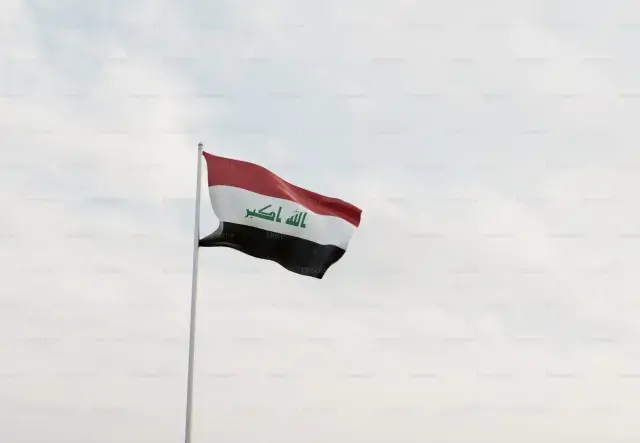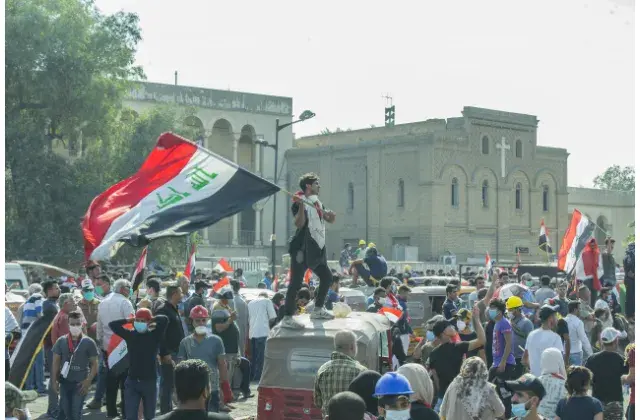Iraq's Constitutional Framework: Shaping a Democratic Future

Iraq's Constitutional Framework: Shaping a Democratic Future
The Iraqi constitution serves as the fundamental legal document that establishes the foundations for governance and sets the framework for the nation's political system. It aims to provide a framework for a democratic and pluralistic society, guaranteeing rights and freedoms for all Iraqis. The first article of the new constitution of Iraq, approved by Iraqis in a popular referendum in October 2005 with a majority exceeding 78% of the votes, states that the Republic of Iraq is an independent sovereign state with a republican, parliamentary, democratic, federal system of government. Meanwhile, the third chapter of the constitution, in its Article 45, stipulates that the federal authorities consist of legislative, executive, and judicial powers, each exercising its jurisdiction and duties based on the principle of separation of powers.
Overview of the constitution's main sections and articles
The Iraqi constitution is a comprehensive document that encompasses various facets of governance and rights. Divided into several main sections, it meticulously outlines the framework for a democratic and pluralistic society. The preamble of the constitution lays down the foundational vision for Iraq, emphasising democracy, federalism, and pluralism as its cornerstones. This section sets the overarching tone and aspirations for the nation, striving for a cohesive and inclusive society.
Embedded within the fundamental principles section are the core values of democracy, human rights, and the rule of law. These principles serve as guiding lights, steering the nation towards a path of equality, justice, and accountability. Ensuring the protection of individual liberties, the fundamental rights and freedoms section guarantees essential freedoms such as expression, assembly, and religion. These rights form the bedrock of a free and open society, fostering an environment where citizens can thrive and express themselves without fear of repression.
Central to the constitution is the principle of the separation of powers, which distributes authority among the executive, legislative, and judicial branches. This division of power safeguards against tyranny and ensures accountability within the government.
At the same time, the constitution allows for flexibility and adaptability through the amendment process outlined in Article 142. This mechanism enables the nation to evolve in response to changing circumstances and societal needs, ensuring that the constitution remains a living document that reflects the will of the people.
Challenges and Controversies
In contrast to parliamentary systems where executive power is vested in a Prime Minister accountable to the legislature, in presidential systems like the one favoured by 62.4% of Iraqi respondents according to a 2022 survey by the International Institute for Democracy and Electoral Assistance, executive authority is concentrated in a directly elected president who serves as both head of state and head of government, potentially providing clearer lines of accountability.
The implementation of the current Iraqi constitution has encountered numerous challenges. One of the primary obstacles are the sectarian and ethnic divisions within the country which have often hindered consensus-building and effective governance. Additionally, security concerns, political instability, and external influences have posed significant barriers to the full realisation of the constitution's provisions.
Furthermore, certain constitutional provisions have been subject to controversy and interpretation. For instance, the balance of power between the central government and the regions has been a contentious issue, particularly regarding the distribution of authority and resources. Also, the role of Islam in Iraqi law and the rights of religious and ethnic minorities have sparked debates, reflecting the complexities of Iraq's diverse society. According to what a number of contributors to the writing of the Iraqi Constitution stated, the goal of drafting the Iraqi Constitution in 2005 was primarily to prevent the return of a totalitarian regime or individual authority, by establishing democratic rule and preventing the return of dictatorship.
Women and minorities in the Iraqi constitution
The Iraqi Constitution of 2005 enshrines the fundamental rights of Iraqi citizens, ensuring equality and fair treatment before the law (Article 14), just judicial procedures (Article 6 (19)), and active participation in public affairs (Article 20). It also guarantees social and health security, addressing the necessities for a dignified life, including housing (Article 30) and healthcare (Articles 31 and 32). Since the era of previous Iraqi governments, Iraq ratified its accession to the Convention on the Elimination of All Forms of Discrimination against Women through Law No. 66 of 1986 on June 28, 1986. Furthermore, the 2005 Constitution incorporates paragraph (4) of Article (49) concerning the representation of women, stipulating a quota. However, this provision must be integrated into the House of Representatives elections law to ensure at least a 25 percent representation of women among its members, as amended and endorsed by the House of Representatives on December 5, 2009.
During that period, on July 22, 2008, the Women’s Welfare Department of the Council of Ministers was formed, which began its executive work in January 2009. This department is concerned with the affairs of widows, divorcees, unmarried women, and wives of the missing, with a social protection network that provides salaries to women without breadwinners, disabled and non-working women. It is also concerned with the educational and training aspects that aim to build women’s capabilities and empower them. On the other hand, it seeks to find job opportunities that are commensurate with women’s academic and professional capabilities and obtain a percentage of appointments in state departments, a percentage of housing units, and a percentage of small loans.
Regarding minorities in Iraq, Article 116 of the Iraqi Constitution specifies that "the federal system in the Republic of Iraq shall comprise a capital, regions, central governorates, and local administrations." Articles 117 to 124 outline provisions concerning regions, governorates, and the capital. Under the title "Local Administration," Article 125 asserts: "This constitution ensures the administrative, political, cultural, and educational rights of various nationalities, including Turkmen, Chaldeans, Assyrians, and all other components, regulated by law."
In conclusion, the Iraqi constitution represents a significant step towards achieving a democratic future, and despite the existing challenges, its continued implementation will be crucial for fostering inclusivity and protecting the rights of all Iraqis.
This article was written by Fatimah Oleiwi and is licensed under CC BY-NC 4.0.






